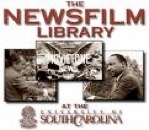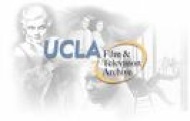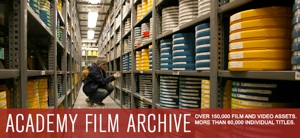
The Orphan Film Symposium has had six incarnations since its start in 1999 at the University of South Carolina. Founder Dan Streible has since developed the symposium into a favorite of AMIA members, filmmakers, and historians. The event is now held at NYU as a project of their Moving Image Archiving and Preservation program, and draws sold out crowds from around the world (18 nations were represented at the last symposium).
For the uninitiated, “orphan” works are those which are outside of the mainstream and often have no known origin or copyright, or were at one point considered “lost” and without a formal repository to preserve it. These include home movies, amateur and educational films, industrial and sponsored films, experimental films, and newsreels. According to Dan Streible, the founder of the Orphans Film Symposium,
-
-
Three dictionary connotations of orphan [are] analogous to what film archivists mean by the label: 1) One deprived of protection (orphans of the storm); 2) an item not developed because it is unprofitable (an orphan drug); and 3) a discontinued model (an orphan automobile) ... we can fairly say that in the twenty-first century, all film (celluloid) is becoming an orphaned technology.
Presenters at the symposium speak about orphan restoration and research projects, their processes of discovery for these films and videos, followed by screenings of the works.
Undoubtedly, latecomers to the Orphans phenomenon are curious as to what stories and treasures the early incarnations of the symposium uncovered. For those curious parties who have missed some or all of the symposia, Los Angeles organizations LA Filmforum and Cinefamily have worked with NYU and Dan Streible to coordinate a two-day retrospective event on May 2 and 3 at the historic Silent Movie Theatre at 611 N. Fairfax. The event will feature five shows; each featuring selected presentations and screenings from all six previous symposia. Orphans founder Dan Streible will be present along with an amazing lineup of presenters and films.
Admission is $13 per show. For $65 you will receive a pass to all five shows in the symposium, free soda and popcorn AND a dinner and wine reception on Saturday night between the first and second shows!
Please visit the Cinefamily site to purchase a symposium pass or individual tickets!
**NOTE** Filmforum members will receive symposium passes at $50, and individual tickets at $9. These prices are not available online in advance, BUT you may email us to reserve your pass or ticket, and then purchase in person at the theatre box office. If you would like to purchase a Filmforum membership at the Orphans West event, you may do so! Email us at lafilmforum@yahoo.com if you would like to do this. Memberships are $60 for a single membership, $95 for a dual membership, and include free admission to all Filmforum screenings for one year.
Orphans West Symposium
Saturday May 2 and Sunday May 3, 2009
At the Silent Movie Theatre,
611 N. Fairfax Avenue (at Melrose), Los Angeles, CA
Presented by Los Angeles Filmforum, Cinefamily, NYU Tisch School of the Arts and the MIAP program

The Lineup (scroll down for details):
Saturday May 2, 6:00pm
Selections from Orphans 1: Saving Orphan Films in the Digital Age
and Orphans 2: Documenting the 20th Century
Saturday May 2, 9:30pm
Selections from Orphans 3: Listening to Orphan Films; Sound, Music, Voice
Sunday May 3, 2:00pm
Selections from Orphans 4: On Location: Place and Region in Forgotten Films
Sunday May 3, 4:30pm
Selections from Orphans 5: Science, Industry and Education
Sunday May 3, 8:00pm
Selections from Orphans 6: The State

Saturday May 2, 2009, 6:00 pm
Selections from Orphans 1: Saving Orphan Films in the Digital Age
and Orphans 2: Documenting the 20th Century
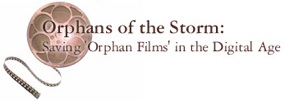

Introduction from Orphans founder Dan Streible
“What is an Orphan Film?” with a surprise film addition by Helen Hill!
Dedication of 'Park Row' (1928)
A very early synch-sound newsreel shot in January 1928 on the backlot at the Fox studios, Movietone cameras and microphones record speakers dedicating a new building for writers. Will Hays pontificates; Tom Mix and other Fox stars speak off the cuff, with a cameo appearance by Leon Trotsky.
PRESENTER: Dan Streible
SCREENING: Dedication of 'Park Row' (1928)
Contemporary Filmmakers Use Orphan Films - Carolyn Faber's Iota (1998)
The filmmaker uses 8mm home movie footage and actually alters the space and time it represents, by closing in on portions of the frames, and slowing down the speed of the original 8mm film, so as to bring out imperfections, flaws and anomalies (i.e. splice lines, grain, dirt, emulsion flaws, etc.), therefore making the original film into something completely different than the original, yet the original still being recognized as such. -- Ryan Sweitzer
PRESENTER: Dan Streible
SCREENING: Carolyn Faber's Iota (1998)
Ed Emshwiller's Project Apollo (1968)
Ed Emshwiller was an influential figure in the experimental film movement that helped expand the horizons of American filmmaking in the 1960s. He was an abstract expressionist painter and science-fiction illustrator before he turned to film and video. Project Apollo was made for the USIA and could not be shown in the US until 30 years had passed. Emshwiller made it in 1968 a year before the actual flight to the moon and the July landing. It focuses on the machines of rocket flight, not the ultimate accomplishment because that was in the future. The film features many of Emshwiller's moving camera shots, which give a sense of depth and involve the spectator in the penetration of space.
PRESENTER: Dan Streible
SCREENING: Project Apollo (1968)
Making The Movie Queen
Itinerant filmmaker Margaret Cram traveled New England in the 1930s, making Movie Queen films starring local townspeople. The films were shot over the course of a week, processed and then screened at the local cinema, where townsfolk would attend to see themselves in pictures. Andrea McCarty will present clips from the surviving Movie Queen films, along with clips from a remake shot and screened before community members in Bucksport, Maine in 2000. The Movie Queen films reside in the collections of Northeast Historic Film.
PRESENTER: Andrea McCarty
SCREENING: clips from Bucksport Movie Queen

Saturday May 2, 2009, 9:30 pm
Selections from Orphans 3:
Listening to Orphan Films; Sound, Music, Voice

Found Home Movies Meet the Avant Garde
Scott Stark presents a collection of mostly 16mm home movie oddities from
the 1940s and 50s, some with sound, as well as one or two of his own short
films.
PRESENTER: Scott Stark
SCREENING: Films of singing families, halloween costuming, first communions and drunken revelry.
Sonic Oddities from the San Francisco Media Archive
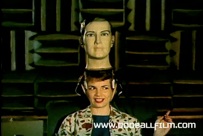
PRESENTER: Stephen Parr
SCREENING: The Knowledge Industry-Jumble Jim (Color, 1968); The Florida Sunshine Tree (Color, Date Unknown); The Media and the Military (B+W, 1960); Eddie Peabody, The Banjo King “Banjo Mania” (B+W, 1942); Why Work? (B+W, 1950s); GTE (Color, 1967); The Far Sound (Color, 1961); The Big Sneeze (B+W, Date unknown); Something to Take to Heart (B+W, 1964); Queer Birds (B+W, Date Unknown); Italian Exciter (Color, date unknown)
Superocheros: Mexico's Super8 Film Movement
Super 8 in Mexico existed largely as movement, a collective effort closely identified with the counterculture and with radical politics. A series of festivals, competitions and manifestos helped maintain a group identity for those involved, who labeled themselves with the format in which they worked--superocheros, or "super-eighters." Luz Externa is a product of precisely this Aquarian-age communal ethos. Its director is José Agustín, novelist, playwright and the premiere chronicler of the Mexican counterculture. This particular film has a special relevance for a discussion of sound and small-format (semi-) amateur film production, for it is a film whose soundtrack was not completed at the time made. Lerner will discuss the "superochero" movement, as well as his role in the historiographic process of reconstructing the film's soundtrack almost 30 years later.
PRESENTER: Jesse Lerner
SCREENING: José Agustín’s Luz Externa (1973) presented with a restored soundtrack
Sunday May 3, 2:00pm
Selections from Orphans 4:
On Location: Place and Region in Forgotten Films

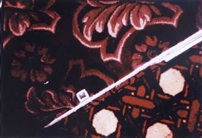
Three works spanning three decades by film and video artist Scott Stark explore urban spaces both interior and exterior, mapping and reconfiguring architecture and design through time, space and movement. Hotel Cartograph (1983) puts the spectator on a movable cart, looking down at the floor, passing over a seemingly endless succession of gaudy carpets and surfaces in a single shot through a major hotel. Under a Blanket of Blue (1996) grafts a sweet, romantic melody onto images of dehumanizing architectural structures in central and northern Spain. Slow (2001) uses a simple cinematic device - the wipe - to interweave human and mechanical movements through fixed spaces over time, revealing potent absences and reflected presences.
PRESENTER: Scott Stark
SCREENING: Hotel Cartograph (1983, 16mm) [above right]; Under a Blanket of Blue (1996, Super 8mm); SLOW (2001, mini-DV)
Building the Hollywoodland Sign (1923)
A short silent piece of footage shows an extraordinary view of the Hollywood landmark in mid-construction, with shots distant and intimate. Print courtesy of the University of South Carolina Newsfilm Library.
PRESENTER: Dan Streible
SCREENING: Building the Hollywoodland Sign (1923)
Early Middle Eastern Films
Early glimpses of life in the Middle East, preserved by Technicolor Creative Services, Film Technology and Fotokem. Prints courtesy of the University of South Carolina Newsfilm Library.
PRESENTER: Dan Streible
SCREENING: Jewish Children Donate Toys to Jerusalem Orphans (Chicago, 1920); Bagdad, Turkey: The City of Bagdad (1924); Cairo Street Scenes (1928); Jerusalem Street Scenes (1929)
Sunday May 3, 4:30pm
Selections from Orphans 5: Science, Industry and Education
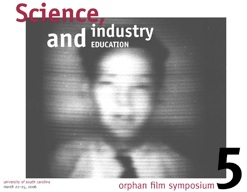
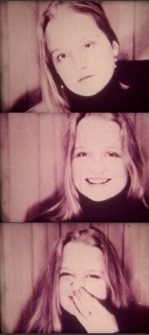
This presentation argues for the scholarly value of sex ed films, and for their special case in the world of archives and academics. The tendency is to view most of these films, from menstruation films to biology films to VD films, as kitschy relics, but in fact they represent very specific viewpoints on social history and customs. Analyzing their message, what is both said and not said, as well as the reasons for their creation, sheds light on the struggle over definitions of sex and bodies in America.
PRESENTERS: Christopher Lane and Amy Sloper
SCREENING: Linda’s Film on Menstruation (1974) by Linda Feferman [right]
Science in Action (CAS 1952 - 66): Spectral Uses of Kinescopy
An audio-visual discussion about kinescopes, science films, science museums, the California Hall of Science, the Science in Action series, and a particular scientist who died in the line of duty, snorkeling for fish, Dr. Earl Herald.
PRESENTER: Craig Baldwin
SCREENING: Spectres of the Spectrum kinescope (from the Science in Action series)
Sunday May 3, 8:00pm
Selections from Orphans 6: The State

Censorship in the Arts: Selections from the Fales Library
A selection of unique short pieces that were selected from a digitization project undertaken between Fales Library, NYU, and SAMMA Systems. By utilizing Media Matters' System for the Automated Migration of Media Archives (SAMMA), NYU was able to digitize a large portion of 3/4" Umatic tapes from their Downtown Collection. These are some of the more interesting and unique clips that were uncovered, all revolving around the theme of arts censorship.
PRESENTER: Stephanie Sapienza
SCREENING: Selection of shorts, including "Graffiti Program" from The Fashion Moda Archive; "Lee Breuer Interview" from The Mabou Mines Archive; "20 Years of Art in Unexpected Places featuring Karen Finley - excerpt" from The Creative Time Archive; "Greg Mehrten Interview" from The Mabou Mines Archive; "Ballad of the Skeletons (excerpt) from The Bob Holman Audio/Video Poetry Collection
Martyn See Protest Videos
Speakers Cornered is the third documentary made by Martyn See, a Singaporean video editor and filmmaker. His first two films, Singapore Rebel and Zahari's 17 Years, were banned under the 1981 Films Act by the Singapore board of film censors. Speakers Cornered was Martyn's first film to be passed by the censors and is about a public protest in Singapore led by opposition politician Dr Chee Soon Juan and the police reaction to it. Courtesy of the Asian Film Archive and Martyn See.
PRESENTER: Stephanie Sapienza
SCREENING: Speakers Cornered
A Meeting of Church and State:
Television’s Paulist Twilight Zone: Insight (1963-1980)
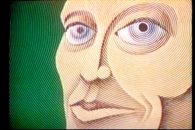
PRESENTERS: Mark Quigley & Dan Einstein (UCLA)
SCREENING: Locusts Have No King (1965)




This symposium was organized by Stephanie Sapienza and Adam Hyman of Los Angeles Filmforum, Hadrian Belove of Cinefamily at the Silent Movie Theatre, and Dan Streible from NYU’s Tisch School of the Arts and the Moving Image Archiving and Preservation Program (MIAP).
Thanks also to the following individuals and organizations for providing assistance to the Orphans West symposium:
Peter Oleksik
Elizabeth Hesik
Mark Toscano
Asian Film Archive
UCLA Film and Television Archive
University of South Carolina Newsfilm Library
NYU Tisch School of the Arts
Academy Film Archive


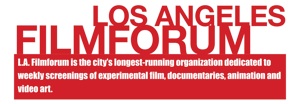
Saturday May 2, 2009, 8:00 pm
Dinner and wine in the courtyard of the Silent Movie Theatre!
** For symposium pass holders only. Click here to buy! **
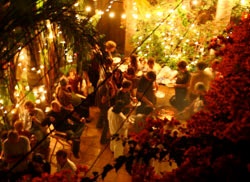


stuff

